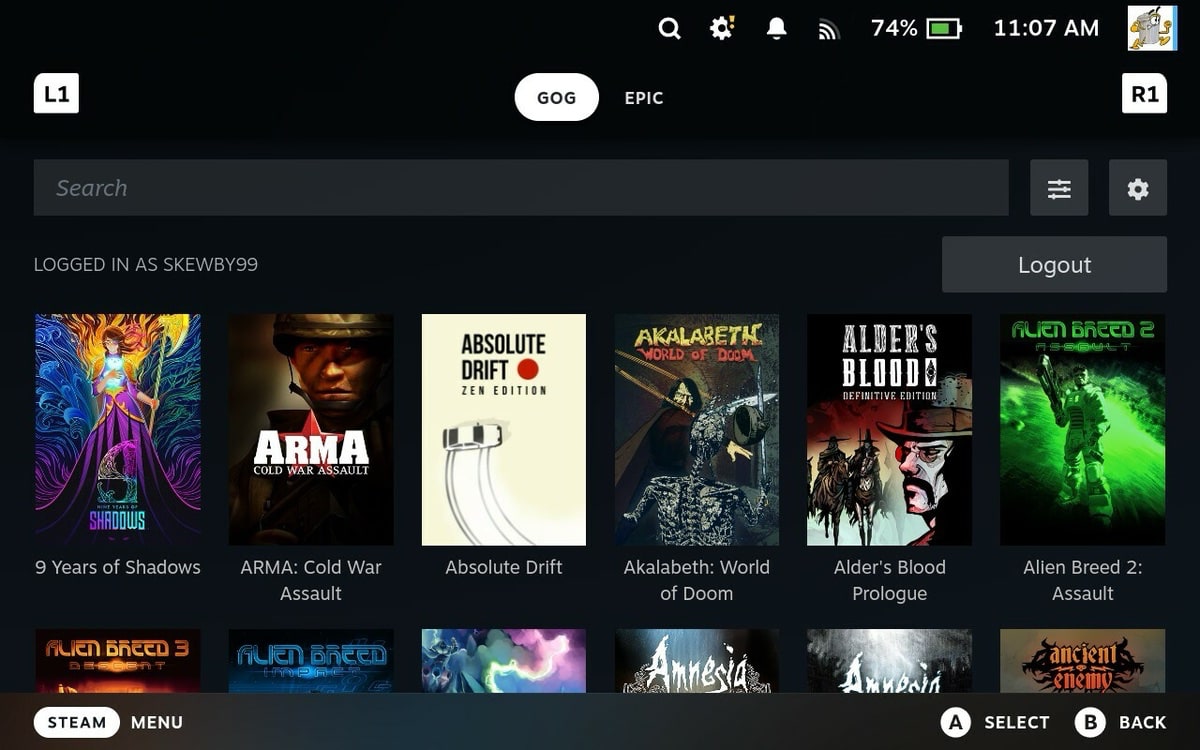
Unleashing the Power of Handhelds: How Windows is Adapting to the Rise of Gaming Portability
The landscape of gaming is rapidly evolving, with handheld gaming devices like the Steam Deck, ASUS ROG Ally, and Lenovo Legion Go paving the way for portable play. As these devices gain traction, both consumers and developers are on a quest for a seamless gaming experience that balances performance and portability. Now, with Microsoft implementing new features to improve input options on Windows, the future of handheld gaming looks incredibly promising.
 The latest handhelds are changing the game.
The latest handhelds are changing the game.
The Latest Innovations in Windows for Handhelds
Microsoft is preparing to enhance the keyboard input experience on portable gaming devices with its upcoming Windows Insider build. Dubbed the “gamepad keyboard” feature, this addition allows players to input text more efficiently using Xbox-standard controllers. It’s a welcome development, considering the challenge of typing on compact devices. The new layout, featuring a grid arrangement, ensures easier navigation through the on-screen keyboard, thus transforming how players interact with their games.
As the Windows Insider blog notes, “This update starts the rollout of a new gamepad keyboard layout for the on-screen keyboard.” With specific hardware buttons now programmed for quick actions—X for backspace and Y for space—Microsoft demonstrates its commitment to enhancing usability for gamers on the go.
The Competition Heats Up
In Australia, Valve is making waves by officially launching the Steam Deck after more than a two-year wait. Players will now have direct access to Valve’s powerful handheld. This could stir up competition in a market already occupied by devices like the ROG Ally X and Lenovo Legion Go. With multiple models of the Steam Deck being offered—ranging from 256GB to 1TB—this move is set to stir the pot in the portable gaming realm, especially given Valve’s reputation for quality and performance.
The Australian market has long waited for the Steam Deck, and its introduction is seen as a game-changer. Valve’s announcement stated, “We’ve been working on bringing Steam Deck for Australia for a while…we’re pleased that we can finally make this announcement.” This direct access not only simplifies the purchasing process but also builds anticipation among fans eager to experience portable PC gaming without the barrier of grey importing.
 Valve’s Steam Deck arrives in Australia, marking a new era for local players.
Valve’s Steam Deck arrives in Australia, marking a new era for local players.
A New Store for Steam Deck
Amid these developments, the gaming community’s innovation continues with the introduction of the Junk Store—a potential game-changer for Steam Deck users. This planned plugin aims to streamline access to games from other platforms such as Epic Games Store and GOG. With the Junk Store, users can expect a smoother experience that does away with the cumbersome process of managing multiple launchers.
This initiative underscores the growing demand for an all-in-one solution within the portable gaming market, providing players with ease of access to their game libraries. A Reddit community surrounding the Junk Store is already buzzing with excitement, showcasing the collective eagerness for this new solution. These advancements reflect an essential shift in how console makers understand and adapt to the needs of their consumer base.
Windows 11: Navigating Challenges
Despite the advancements from Microsoft, challenges remain for Windows 11 on handheld devices. Users often face performance issues due to the operating system’s resource demands and the custom interfaces required by certain games. Nonetheless, the promise of official SteamOS builds for devices like the ROG Ally suggests that players have alternatives should Windows not meet their needs.
Portability remains a critical consideration, especially as developers explore Linux-based systems that allow for a more tailored experience. As flexible operating systems become prevalent in this space, players can expect a resurgence of pro-gaming features that cater specifically to handheld users.
Looking Ahead: What’s Next for Handheld Gaming?
With Microsoft’s updates and the likes of Valve’s Steam Deck making headway into international markets, the future of handheld gaming looks bright. Competitive pricing combined with innovative features is likely to fuel further interest in portable gaming devices. In Australia, Valve’s price points seem to undercut competitors, hinting at a competitive playing field that will benefit consumers.
The handheld gaming market is ripe for innovation and expansion, and with developers more willing than ever to enhance compatibility and usability, it’s an exciting time to be a mobile gamer. As these technologies continue to evolve, players can expect a surge of creative solutions for their gaming needs, thus keeping the handheld gaming renaissance alive.
 Expect more from handhelds in the near future.
Expect more from handhelds in the near future.
While we venture deeper into this handheld revolution, one thing is certain: the evolution of portable gaming technology is set to redefine how players interact with their games anytime, anywhere.
Embrace the gaming odyssey and stay tuned for more updates on the ever-evolving world of handheld devices. Explore the journey on platforms like Steam and connect with fellow gamers on Reddit.















